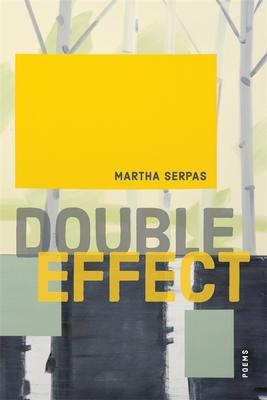Martha Serpas's Double Effect reimagines a principle first outlined by St. Thomas Aquinas in Summa Theologica, which considers whether an action is morally permissible if it causes harm while bringing about a good result. In resonant verse pointed by Cajun language, these poems measure the good that can come from destructive situations: maternal deprivation, spiritual poverty, mania, ecological devastation. Serpas shows that compromised marshes and the Gulf of Mexico offer surprising sustenance and clarity. Time is marked by feast days, hurricanes, celebrations, accidents, and rescues along southern Louisiana's eroding coasts. Double Effect ultimately finds joy in survival, in love, and in spiritual fulfillment.

Martha Serpas's Double Effect reimagines a principle first outlined by St. Thomas Aquinas in Summa Theologica, which considers whether an action is morally permissible if it causes harm while bringing about a good result. In resonant verse pointed by Cajun language, these poems measure the good that can come from destructive situations: maternal deprivation, spiritual poverty, mania, ecological devastation. Serpas shows that compromised marshes and the Gulf of Mexico offer surprising sustenance and clarity. Time is marked by feast days, hurricanes, celebrations, accidents, and rescues along southern Louisiana's eroding coasts. Double Effect ultimately finds joy in survival, in love, and in spiritual fulfillment.
Paperback
$20.95